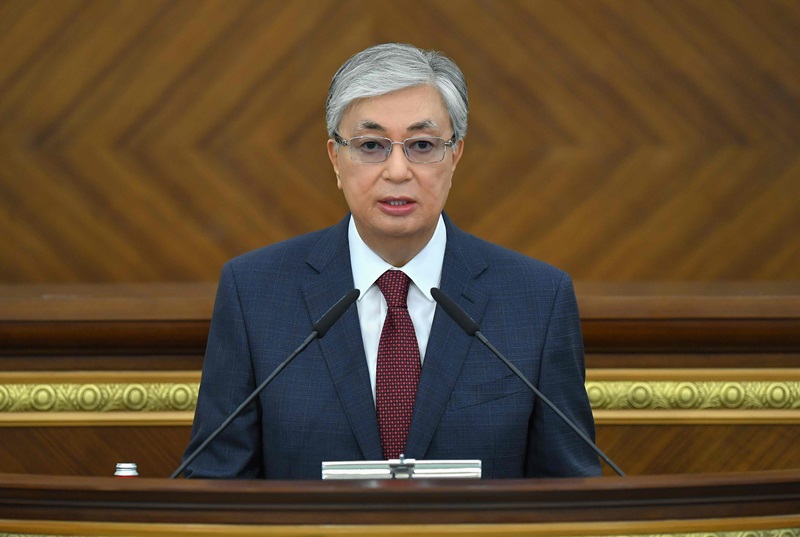Tokaev's first five years
Nazarbayev had chosen him for his loyalty shown in the many posts given to him in previous years. Instead, the surprises began with the elections on 9 June 2019, which caused unprecedented protests. There has been no real change in the bureaucratic machine and in the caste of the country's oligarch masters, while political repression against any semblance of opposition continues.
Astana (AsiaNews) - 9 June marked five years since the election of Kasym-Žomart Tokaev as president of Kazakhstan, having assumed provisional office on 20 March 2019 following the resignation of his predecessor, Nursultan Nazarbaev.
He was then re-elected in an early election convocation on 20 November 2022, in an attempt to pacify the country after a particularly turbulent year, which began with the bloody suppressed uprisings in January 2022, which was followed by the Russian invasion of Ukraine.
His presidency was thus very much affected by the unpredictable events that began with the Covid-19 pandemic, which prevented a peaceful succession between the 'eternal president' and his dauphin, leading Kazakhstan to the need for profound reforms and the overcoming of Nazarbayev's cult of personality, which had characterised the entire 30-year post-Soviet period.
Observers of Kazakh politics in the majority therefore define Tokaev's five-year term as 'change for preservation', not really believing in the will of the president and the ruling class to build a 'new Kazakhstan'.
Nazarbaev had chosen him because of his loyalty shown in the many posts entrusted to him in the previous years, and because of his great diplomatic career that guaranteed a stable and predictable course, which would have allowed Elbasy, the 'father of the fatherland', to maintain full control even from behind the scenes.
Instead, the surprises began with the elections on 9 June 2019, which sparked protests unseen in Kazakhstan's recent history, with thousands of people arrested in the capital Astana, then called Nur-Sultan, and in the main city of Almaty.
The protests then overflowed to Kantar, the 'bloody January' of 2022 in which 238 people died, and which risked subjecting the country to Russian invasion, troops from Moscow having arrived under the banner of the Csto alliance, sent back in a hurry by Tokaev.
After his last re-election, the president promised that he would not run again at the end of his seven-year term in 2029, and it remains to be seen to what extent he will be able to avoid new unrest in the second half of his term, as the many economic, social and political problems that caused the previous turmoil have not been resolved.
Initially, the slogan of the 'succession' presidency was the 'listening state', overcoming the distance between the leadership and the people of the Nazarbayev period. Already in 2020, a law had been passed that ostensibly granted greater freedom of expression and aggregation, although in fact no spontaneous demonstrations were allowed.
As a matter of fact, the government continues to deny most of these 'bottom-up' initiatives, granting only the possibility of gathering in direct and 'top-down' controlled forms, and Kazakhstan fails to overcome the image of an authoritarian state, beyond the proclamations.
As the independent political scientist Dosym Satpaev observes, 'it was naive to think in 2019 that a system of which Tokaev was and is the most typical product would change', and in the current convulsive geopolitical phase everything can be thought of, except true and deep reforms.
There has been no real change in the bureaucratic machine and in the caste of the country's oligarch masters, while political repression against any semblance of opposition continues.
The most serious problem, according to Satpaev, is the country's lack of truly strong institutions capable of facing the great challenges that await Kazakhstan and the entire Central Asian region.
The political scientist notes that Tokaev is also used to the 'manual conduct' of power, which is based on 'four pillars: the ruling family, the organs of force, an ineffective bureaucracy and the oligarch caste'. Compared to Nazarbaev, the 'family' has disappeared, but otherwise nothing has changed; Tokaev wrote in recent days in Euronews that Kazakhstan is 'a medium-sized power' with an important role on the international stage, but evidently has yet to find its true identity.
07/02/2019 17:28







.png)










